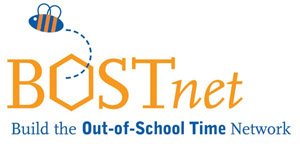The Wallace Foundation recently published a series of papers from nationally-recognized experts on the afterschool and out-of-school time fields--Strengthening Out-of-School Time Organizations: Three Views. The papers explore key organizational, administrative, and managerial obstacles facing OST programs today, and offer several potential solutions to address these obstacles. While each paper has its own focus, one organizational capacity is prominent whether we are talking organizational management, quality improvement, or system building--LEADERSHIP.
Lucy Friedman's paper, "A View from the Field: Helping Community Organizations Meet Capacity Challenges," presents the most straightforward view of leadership. Drawing on The After School Corporation's (TASC) experience, Friedman notes that well-run, effective community based organizations all have strong leaders who address problems quickly and utilize scarse resources in the most efficient way. Significantly, Friedman argues that these leaders tend to have afterschool at the center of their mission. This means that they lead from a mission-based perspective that elevates the value OST provides children and youth. These leaders are better partners, whether with schools or other community-based organizations, because they have a strong sense of purpose. Friedman argues that funders must provide additional administrative support in order for these leaders to maintain a focus on service quality.
Gil Noam, executive director of the Program for Education, Afterschool and Resiliency is even more explicit in outlining the role of leadership. For Noam, program support structures and leadership occupy one side of quality triangle model. Strong leaders, in effect, connect all the elements that are critical for quality OST programming, from activities and curriculum, to staff development and organizational management. Effective leadership is critical to sustain a level of quality programming that has been linked to positive youth outcomes. For Noam, investment in leadership development systems will leverage all other investments in quality and organizational stability.
Finally, Heather Weiss and Pricilla Little of the Harvard Family Research Project, look toward the transformative power of effective leaders in their article on "The Role of Foundations in Strengthening OST." Within the Weiss and Little model, OST nonprofits occupy a place within a larger ecological model around learning and development for children and youth. With the movement toward seamless, whole child services that blur the lines between school, OST, and community supports, OST leaders must be collaborative changemakers, building networks and connecting to a much broader range of community partners. Funders have a role to help OST leaders through network building, training, learning communities and other resources. Funders also need to use their economic and political weight to make sure OST leaders have a prominent place at the education reform table.
While Friedman and Noam both elevate the role of leader in well-functioning OST organizations, Weiss and Little take that inward view to the next level. Drawing on the book Forces for Good: The Six Practices of High Impact Nonprofits, Weiss and Little warn of the "social entrepreneurs trap." According to the authors, "This is the trap of expanding one's own program or model without leveraging expertise and other capacities to support 'field building, policy making and broader social change' in the community and country." Being a good organizational leaders is not enough. At this important point in the development of the OST sector, we need field leaders who can provide clarity, direction and a sense of purpose for our work.
Gov. Patrick Establishes Six Readiness Centers
16 years ago

1 comment:
I wonder whether we can even discuss leadership and leaders when there is no consistent funding. How can we attract people who want to throw their energy into a program that no matter how good it is or how many children it serves, can vanish at the stroke of a pen or because funders get other interests?
Post a Comment